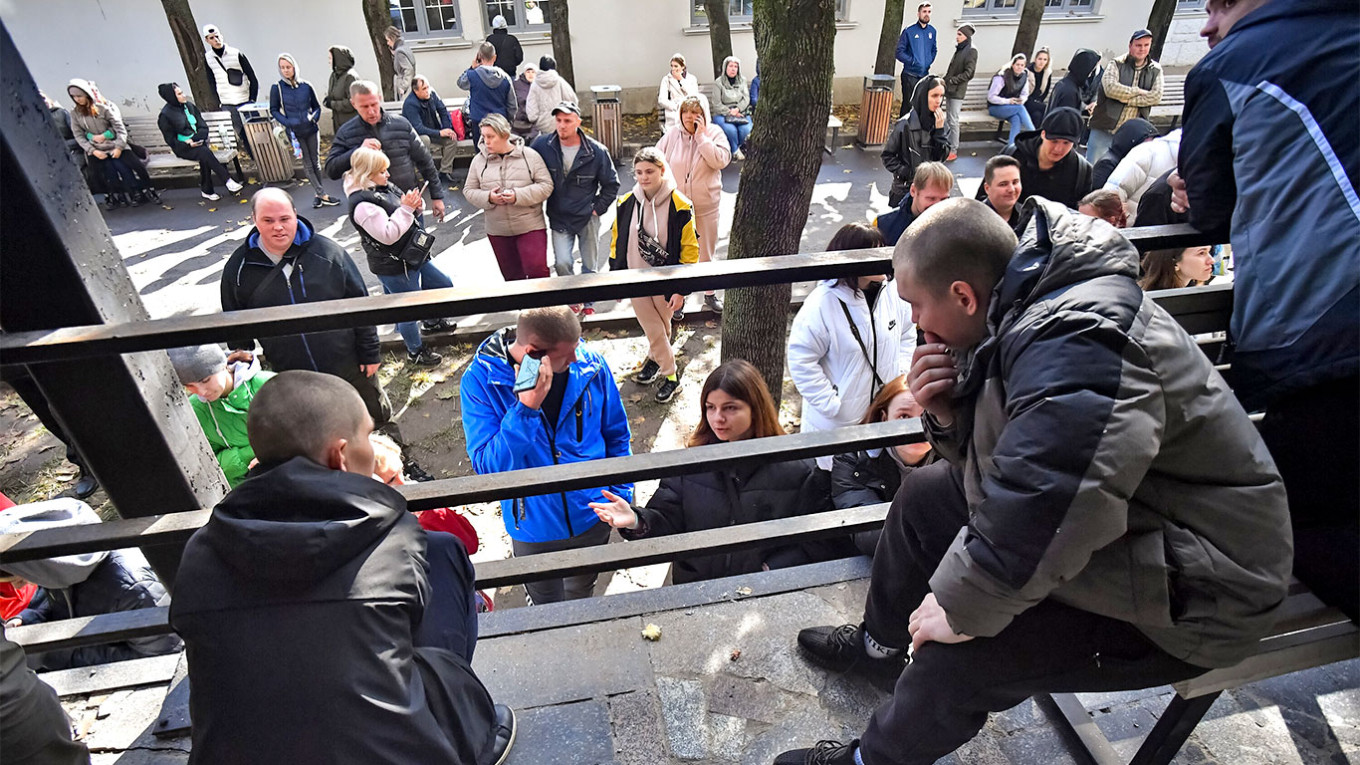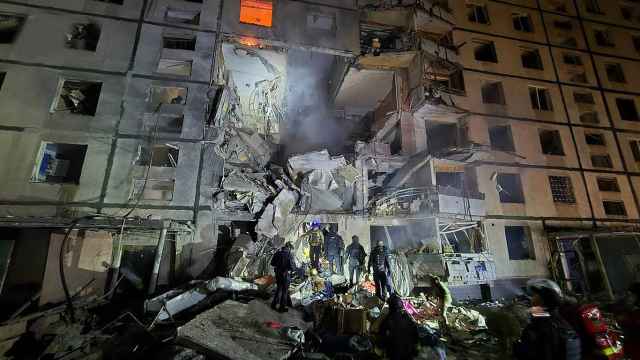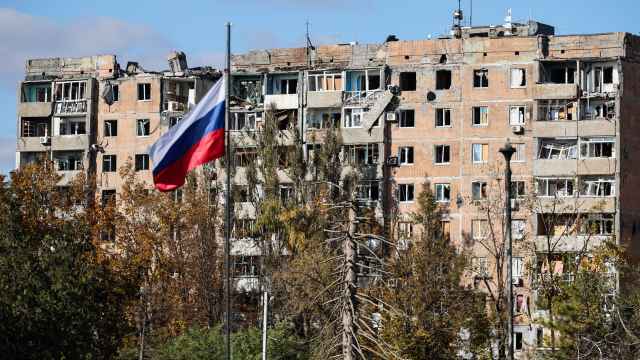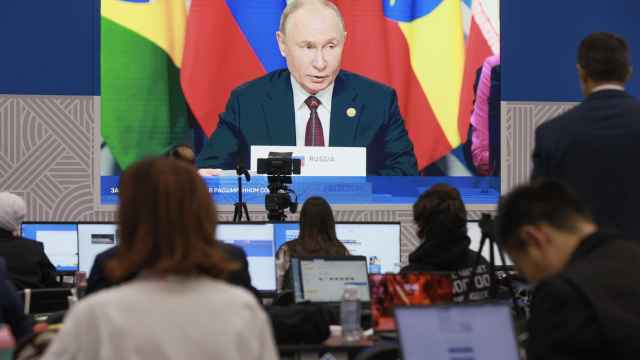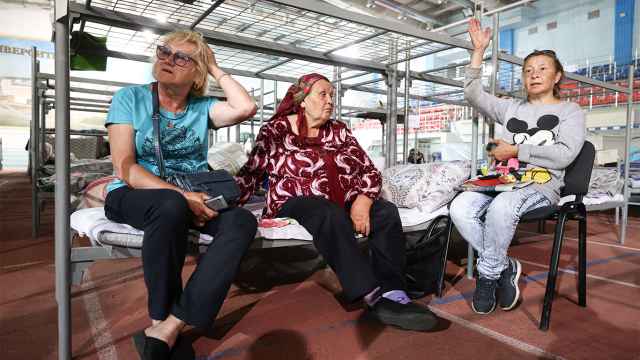The day Russia invaded Ukraine, social entrepreneur and political activist Alexei Minyaylo gathered his friends and partners to brainstorm how to “end this madness.” The answer came quickly: public opinion polling.
“The authorities always use polls to create the illusion of a majority and that’s a very powerful social mechanism,” Minyaylo told The Moscow Times.
“People see this general trend that people support the war, so they say, ‘Yes I support it as well.’ We understood that we needed to destroy this illusion if we wanted to change anything.”
The resulting Chronicles research project materialized almost overnight. Within four days of the war’s outbreak, Chronicles’ pollsters had started phoning people across the country.
Innovative polling outfits trying to gauge what Russian people are really thinking have sprung up since the invasion of Ukraine as draconian wartime censorship laws and growing authoritarianism make it hard for traditional pollsters to accurately measure public opinion. As well as Chronicles, they include projects like Russia Watcher, Extreme Scan, and Russian Field.
Given the challenges of operating inside the country, researchers have also ramped up polling in Russia from abroad, eager to understand how the largest ground war in Europe since World War II is perceived in the country that ignited it.
In Cyprus, the independent sociologist Elena Koneva assembled an international collective of researchers and academics called ExtremeScan to cut through the “fog of war” and provide data on the mood inside Russia, Ukraine and Belarus. In the United States, political scientists at Princeton University launched Russia Watcher, a daily survey of public attitudes toward the war in Ukraine.
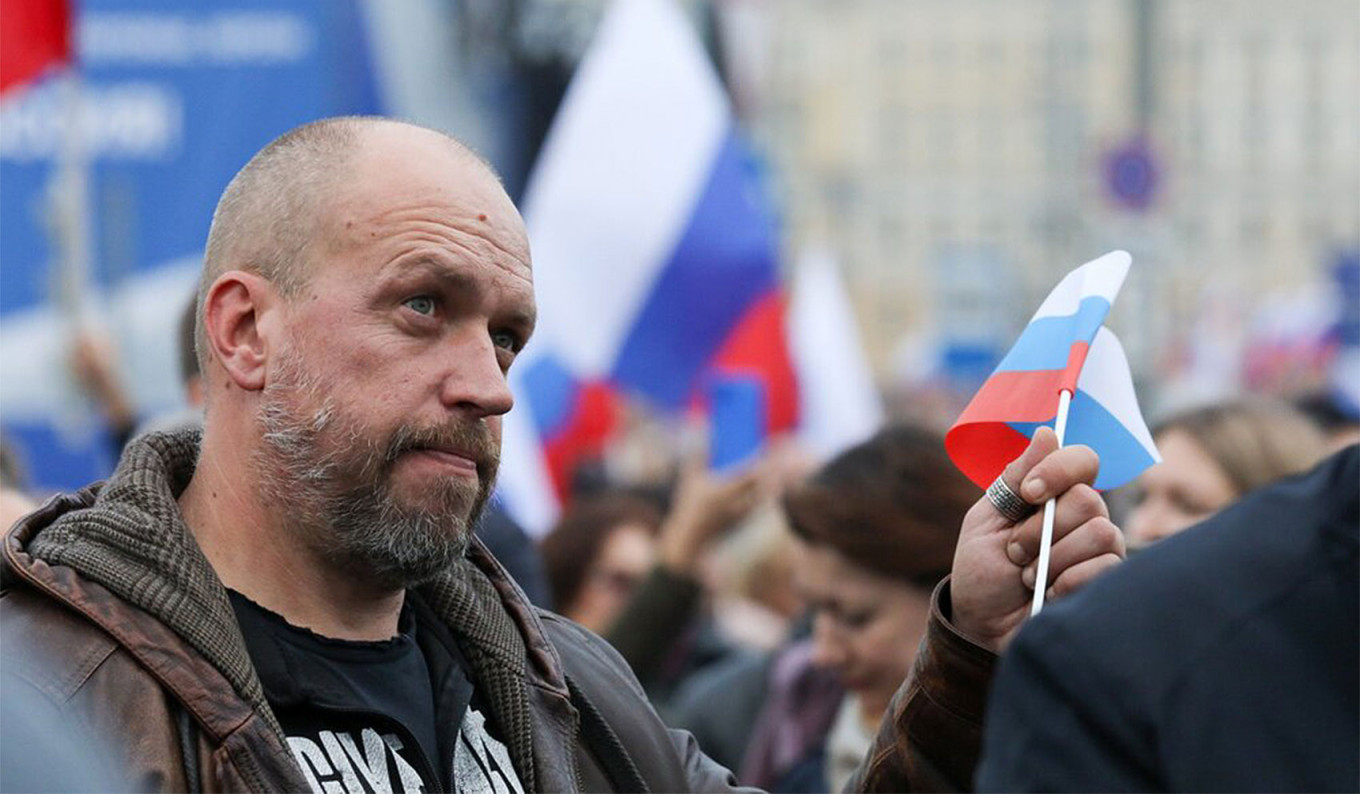
“We offer an alternative vision of what’s going on inside Russia,” Koneva told The Moscow Times. “Research in wartime is not only possible but it is necessary, it is important. Even if the research is limited or restricted, any knowledge is better than no knowledge.”
Koneva sold her market research company and left Russia in 2016.
“I decided that I would be a person of Europe and the world,” she said. “But still, my thoughts and feelings are left in Russia.”
With ExtremeScan, Koneva aims to give more nuanced data to world leaders and policymakers. The issue of closing borders to Russians fleeing mobilization, for example, should be considered with the knowledge that “real, conscious support” for the war is around 40% — not the oft-cited figure of 70%, she said.
The group arrived at that figure after six waves of polling showed 55% of respondents answering “yes” when directly asked if they back the war. Support dwindled to 38%, however, as pollsters posed more probing questions: Are you willing to contribute financially to the Russian army? Do you think a Russian victory would personally benefit you? Are you ready to mobilize?
The pollsters pay close attention to factors like how fast respondents answer, how they breathe, and whether they are open and friendly or closed and suspicious, she said. “We are very curious about the combination where you support the war but also want the war to stop immediately.”
The Chronicles project pegs support for the war at about 30% using similarly targeted questioning. The group’s sociologists craft polls knowing that Russia’s criminalization of public anti-war sentiment has instilled fear in many people, Minyaylo said.
Respondents have told pollsters, “I am afraid to say this” or “If I reply to you, the police will come and get me” or “I would like to say what I think but it’s now a criminal case,” Minyaylo said. To measure the extent of the fear, Chronicles conducted an experiment giving people the option of not answering a question. An estimated 10% of respondents who would otherwise declare support for the war chose “I don’t want to answer” instead, he said.
“It’s very difficult in a dictatorship, during a war, to get what people are really thinking because they tend to identify themselves with the majority, they tend to lie because they are afraid,” Minyaylo said.
“But what I can say with high confidence is that the picture we get is much closer to what people are really thinking because we use more appropriate and smarter methods.”
Minyaylo remains in Russia, as does half the team. He said he has no intentions of leaving, calling his choice a “matter of principle.”
“Both my grandfathers fought in World War II and they defeated Hitler, they didn’t run from him, they actually ran towards him. So now my duty is to defeat Putin, who is Hitler’s spiritual successor,” he said.
While ExtremeScan and Chronicles suggest a minority of Russians support the war, other polling agencies — including veteran Russian outfits — put the figure much higher.
Support for the war in Russia was at 72% in September, down from 80% in March, according to data from the independent Levada Center. State-run polling agencies like VTsIOM have consistently given similar figures.
At Princeton University, political scientists tracking public opinion in Russia as part of the Russia Watcher project said they have been struck by the stability of support for the seventh-month war. Grigore Pop-Eleches, Isabelle DeSisto and Jacob Tucker said approval for Putin’s decision to conduct a “special military operation,” which they estimate at about 74%, appears unwavering despite the campaign’s military setbacks.
Russia Watcher has tracked opinion on various developments, day by day, since May.
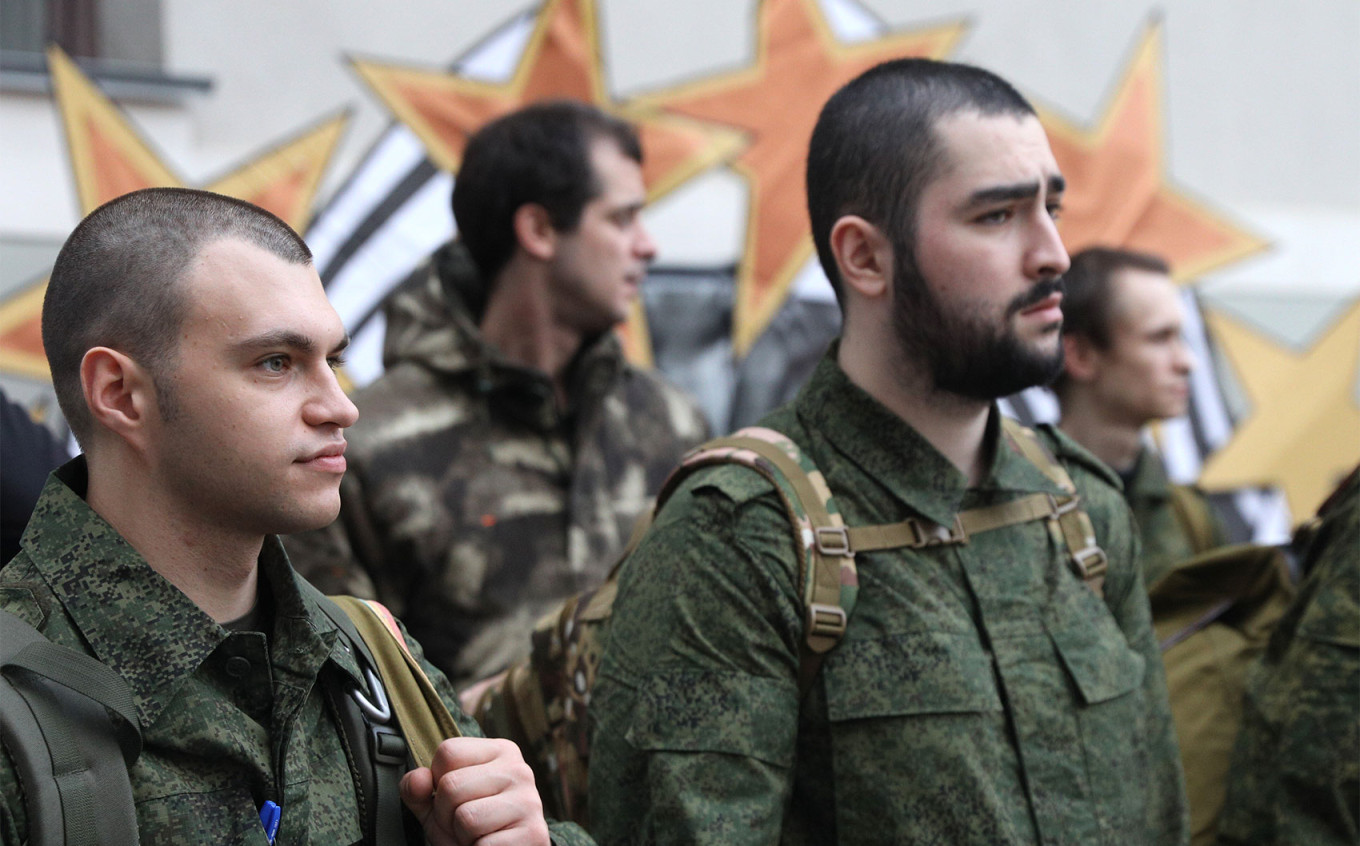
The daily samples allow the project to capture a much more “fine-grained measure of over-time changes,” the group told The Moscow Times via email.
Every day, 200 randomly selected respondents in Russia fill out an online questionnaire set by Russia Watcher that contains 25 questions. The survey avoids using the word “war” to protect respondents from legal problems.
Pop-Eleches, DeSisto and Tucker pointed out that Western sanctions have made polling in Russia much more difficult, especially if it involves working with Russian firms.
Still, they hope to gather high-quality data that will help foster “a better understanding of the extent and the nature of public support (and opposition) to Russia’s war in Ukraine.”
The burst of new polling initiatives and projects has been a boon to researchers looking to cross-validate their findings and create a comprehensive picture of wartime Russia, said Maxim Alyukov, a researcher at King’s College London.
Alyukov is part of the Public Sociology Laboratory, a research group formed in the aftermath of Russia’s 2011 opposition protests to study politics and society in Russia and post-Soviet regions. Three days after the war began, the laboratory began delving into how Russian citizens perceive the conflict, arranging interviews of up to two hours with respondents.
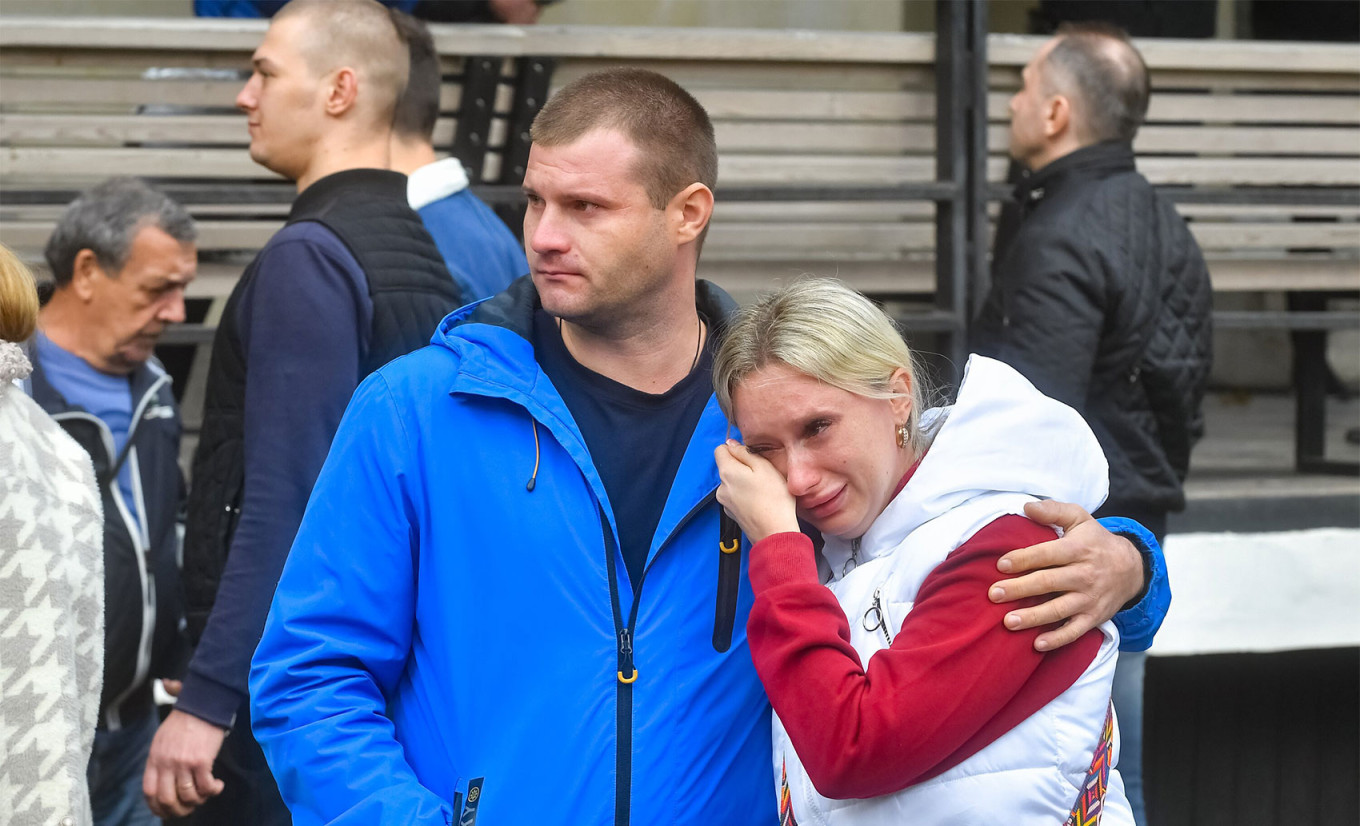
“It’s a more in-depth method which allows us to understand how people think in terms of psychological motives,” Alyukov said. “This is something we can’t really understand when we conduct surveys and ask people questions.”
Of more than 200 people interviewed, the majority are “doubters” who claim they have no opinion on the war, according to another member of the laboratory.
“Their reaction to the war is distancing; not support, but distancing: ‘I can’t trust independent media, I can’t trust state propaganda, I don’t know what to believe so I’m going to stay away from politics’,” Alyukov said.
Despite the problems of censorship and the illegality of anti-war sentiment, Alyukov believes polling still has an important role to play in surveying the mood inside Russia — as long as the results are properly contextualized.
“Very often results are taken at face value — OK, 70% of people in Russia support Putin. But looking at different sorts and kinds of data we know that it’s not [that number],” he said.
“We have to take into account how an opinion is formed. Does ‘yes’ mean ‘Yes, I support Putin’ or do people say ‘yes’ so they are left alone? What is often measured is not people’s opinions but people's reactions to the opinions of others.”
A Message from The Moscow Times:
Dear readers,
We are facing unprecedented challenges. Russia's Prosecutor General's Office has designated The Moscow Times as an "undesirable" organization, criminalizing our work and putting our staff at risk of prosecution. This follows our earlier unjust labeling as a "foreign agent."
These actions are direct attempts to silence independent journalism in Russia. The authorities claim our work "discredits the decisions of the Russian leadership." We see things differently: we strive to provide accurate, unbiased reporting on Russia.
We, the journalists of The Moscow Times, refuse to be silenced. But to continue our work, we need your help.
Your support, no matter how small, makes a world of difference. If you can, please support us monthly starting from just $2. It's quick to set up, and every contribution makes a significant impact.
By supporting The Moscow Times, you're defending open, independent journalism in the face of repression. Thank you for standing with us.
Remind me later.



